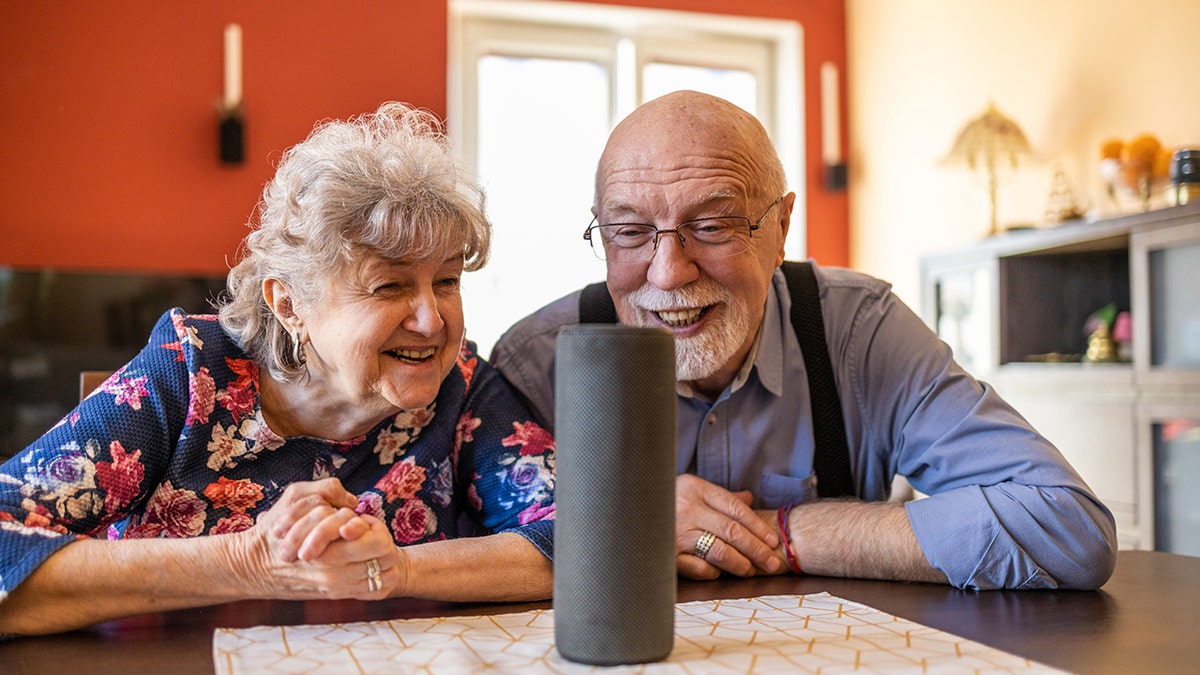The first generation that has been consistently exposed to digital technology reached the age where the symptoms of dementia arise.
Some have claimed that digital technology can negatively affect the cognitive power, but researchers at the University of Belar have discovered the opposite.
“You can jump to the news any day and people will see people about how the technologies are damaging us,” said Michael Scalin, co-authors of the study, in a press release.
The risk of dementia attached to hospital inspections related to marijuana, said research
“People often use the word ‘brain drain’ and ‘brain -brain’ and now ‘digital dementia’ is an emerging phrase. As researchers, we wanted to know if it was true,” said Scalin.
A new hypothesis known as “Digital Dementia” predicts that digital technology can negatively affect the cognitive ability of the lifetime. (Estock)
Researchers have analyzed past studies to determine the impact of technology on mental aging. Their search, which was published in the journal Nature Human behavior, suggests that digital technologies can actually save cognitive capabilities.
America seniors are at risk for this digital threat, experts have warned
For meta-depth, researchers have analyzed more than 66 studies, which include an average of 5,7 adults with six years of follow-up data.
The team has concluded that the use of digital technology is related to the less risk of 58% of cognitive weakness even after adjusting the level of gender, age and education.

According to the survey, the use of digital technology is related to 58% of the less risk of cognitive weakness. (Estock)
According to Scalin, a contributing factor, when talking to technology, may be the cognitive challenges that older adults face.
Click here to get Fox News app
“One of the first things that the middle -aged and older adults was saying is’ I am frustrated by this computer. It is hard to learn,” he said in the notice.
“This is actually a reflection of cognitive challenges, which can be beneficial for the brain even if it does not feel great at the moment.”
Alcohol associated with the brain damage to heavy drinkers, looking for study
Technology can be cognitively challenging because it always changes, forcing users to learn and adapt, researchers have noted. It “practice” the brain and helps keep it sharp.

Since technology is always changing, researchers involved in research say it forces the brain to adapt and become stronger. (Estock)
Diagnosis of dementia involves the loss of power such as pills, monitoring of appointments, and reducing the power to keep navigate direction freely according to the Alzheimer Research UK website.
Digital equipment such as web calendar, phone reminders and navigation applications can allow more independence in older adults.
Click here to sign up for our health newsletter
Studies have shown that “Digital Scaffolding” – the process of using these tools for performing daily tasks – “To facilitate better effective results in older adults while decreasing common cognitive functionality.”
One of the most controversial aspects of the impact of digital technology on our brain is the use of social media, but according to researchers it is not all bad.

Researchers say that an advantage of technology is the greater potential of social connection. (Estock)
According to experts, another advantage of digital technology is the ability to maintain social connection to elderly adults, which have been associated with reduced dementia risk.
“Now you can connect to the family throughout the generation,” said Scalin.
For more health articles, see www.foxnews.com/health
“You can’t just talk to them, you can see them you you can share pictures you
Leave a Reply